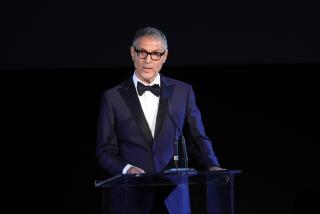Endocare Stock Sees Another Double-Digit Gain
- Share via
Shares of Endocare Inc. posted a double-digit gain for the second day Friday on news that the Irvine company’s primary treatment for prostate cancer patients also is effective for patients unsuccessfully treated with radiation.
The stock, which hit a low of $2.13 a share exactly a year earlier, reached a 52-week high of $14 during Friday’s trading. The stock closed at $12.31, an increase of $1.43--or 13%--over Thursday’s close.
The success the company is having with cryosurgery prompted one analyst and the company’s president to suggest that the procedure--and the company’s temperature-based surgical devices and technologies--could be used to treat breast cancer where radiation treatment has failed.
It is “evident that market shows extreme promise for us,” said Paul Mikus, Endocare’s president.
Cryosurgery is a minimally invasive procedure that uses extremely cold temperatures to freeze and destroy cells.
The Endocare-funded clinical trial found that 42 of 43 men--97%-- with prostate cancer who were unsuccessfully treated with radiation and then underwent cryosurgery nearly two years ago have been disease-free since.
“Clearly, we were encouraged by this data,” said John Calcagnini, an analyst at CIBC World Markets. “This is a patient population without a lot of options. This trial has proven to be enormously successful.”
Calcagnini, the only analyst who covers Endocare, said that cryosurgery treatment for radiation failures “expands the company’s potential target market by at least 20,000 patients ($60 million).”
According to Endocare, 30% of the 180,000 men diagnosed with prostate cancer each year undergo radiation therapy as a primary treatment. But the disease recurs in about 40%, or nearly 22,000, of those men, the company said.
“For these men, secondary treatment with cryosurgery can stop the disease’s progression and improve long-term survival,” Endocare said in a press release.
In the last year, Endocare stock climbed very slowly until it hit $9 a share this week. After the company trumpeted the clinical study, released in Thursday’s edition of the journal Urology, the stock made its first double-digit jump, climbing 15% to close at $10.88 a share.
The company’s clinical success, however, isn’t translating into profits yet. Endocare has been losing increasing amounts of money in the last four years, dropping $4.8 million on revenue of $2.1 million in 1998.
Calcagnini said that management has expressed comfort with his fourth-quarter estimate of a 23-cents-a-share loss on revenue of $1.1 million. Endocare lost 14 cents a share in the previous year’s final quarter.
More to Read
Inside the business of entertainment
The Wide Shot brings you news, analysis and insights on everything from streaming wars to production — and what it all means for the future.
You may occasionally receive promotional content from the Los Angeles Times.










